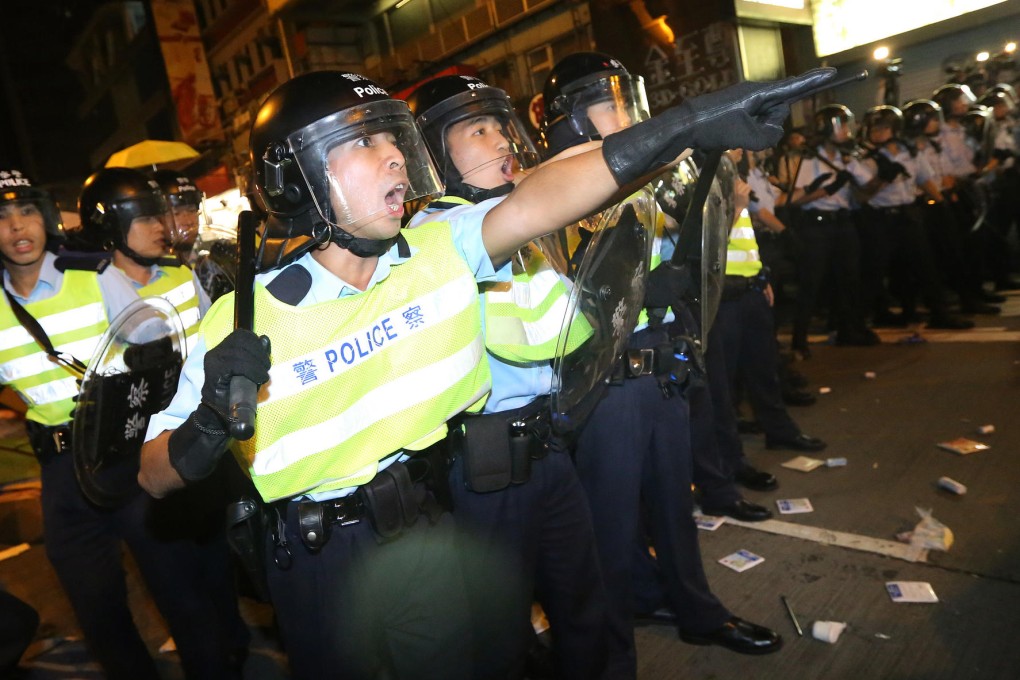Police warn online posters who incite Occupy protests will be arrested
Force says more arrests could be made after first person is charged for posts on internet forum

Police say more arrests could be made of those who use the internet to incite others to join the "unlawful" Occupy protests.
The warning came after a 23-year-old man was arrested in Tin Shui Wai on Saturday for posting messages on an online forum encouraging people to join an unlawful assembly, charge at police and block railways,
The man was charged with "access to computer with criminal or dishonest intent" and unlawful assembly after he was found to have joined the protests in Mong Kok on Friday, police said.
The suspect has been released on bail and investigations are ongoing.
At the daily press conference yesterday, the police public relations bureau head, Chief Superintendent Steve Hui Chun-tak , said more such arrests were possible and that it was a "very serious criminal offence" to "incite others" to join the protests.
Hui reiterated that most laws that apply to the real world were applicable to the internet and said that the force would make arrests if there was adequate evidence.
Hui did not reveal the exact wording of what was posted online, but said the suspect "was inciting others to join an unlawful assembly in Mong Kok, to charge police cordons and to paralyse the railway".